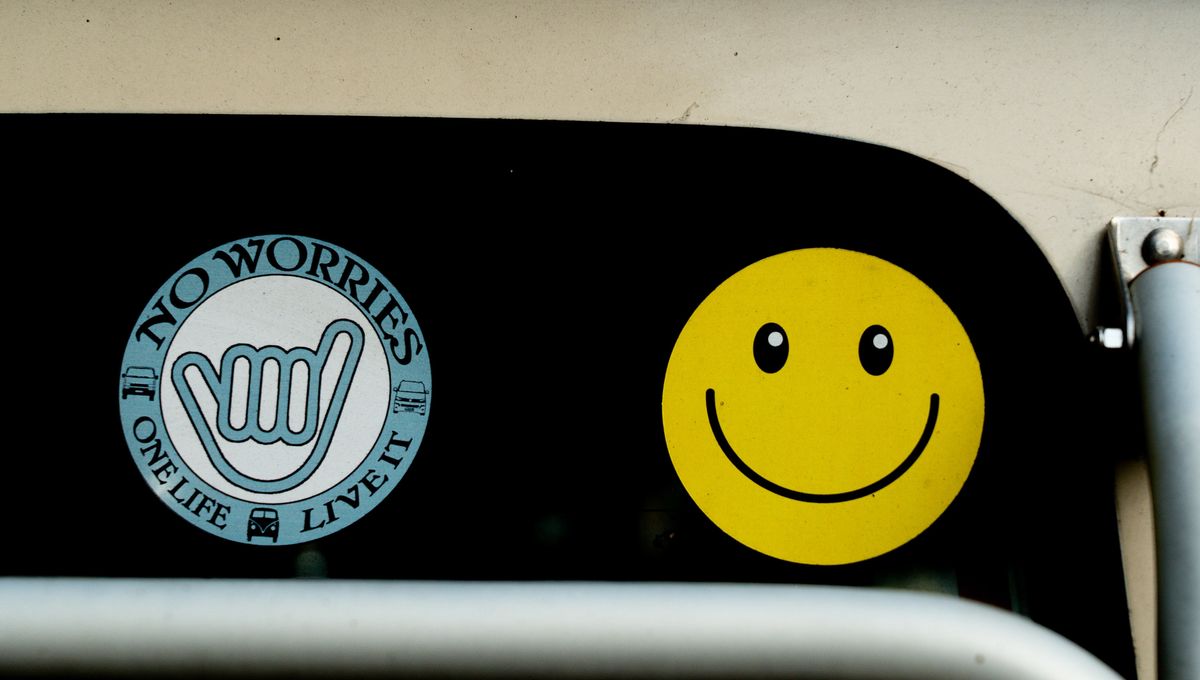
As the old saying goes: you’ve got to fake it till you make it. It’s why we dress for the job we want, not the job we have; why we carry ourselves as if we’re cute (even if we think we’re so-so); and most importantly, why we put on a happy face, even when we’re feeling down.
“The facial feedback hypothesis suggests that individuals’ emotional experiences are influenced by their facial expressions. For example, smiling should typically make individuals feel happier, and frowning should make them feel sadder,” explains a recent paper aiming to investigate just how true this last piece of wisdom really is.
It may sound suspiciously close to “Live, Laugh, Love” as a philosophy, but the idea that a smile – even a forced, fake one – can actually make you happier has some genuine scientific thought behind it. “Researchers suggest that these effects emerge because facial expressions provide sensorimotor feedback that contributes to the sensation of an emotion,” explains the paper.
“This facial feedback hypothesis… supports broader theories that contend emotional experience is influenced by feedback from the peripheral nervous system, as opposed to experience and bodily sensations being independent components of an emotion response,” the authors note.
But would the theory hold up in the real world? To investigate that, the team embarked on an ambitious research project, recruiting nearly 4,000 participants across 19 countries to discover whether consciously making a smile – whether knowingly or accidentally – really could affect a person’s mood for the better.
Now, we know what you’re thinking: how does one smile consciously, but also accidentally? It all depends on which group in the study you fell into.
Volunteers were assigned into three sets – one was shown images of an actor smiling, and told to mimic the picture; a second was given instructions on how to configure their facial muscles so that, without realizing, they made what could be reasonably described as a “smile”; and the third were told to hold a pen in their mouths with either their teeth or lips – the first of which forces a face into something like a smile.
But did these measures actually lead to an increase in happiness? Surprisingly, yes – at least, some of them. “There was strong evidence of facial feedback effects in the facial mimicry and voluntary facial action tasks, but the evidence was less clear in the pen-in-mouth task,” explains the paper.
The researchers aren’t entirely sure why the effect was reduced in the pen-in-mouth experiment – but regardless, lead author Nicholas Coles told Today, “smiling in hopes it will make you feel happier is probably worth a shot.”
“It’s not going to cost you anything and maybe it will work,” he said. “But you shouldn’t see this as a substitute for therapy.”
And if you’re wondering whether the same effect works in reverse – the answer is yes, potentially. Pulling a disgusted face, for example, “triggers more intense feelings of disgust,” Thea Gallagher, a psychologist at NYU Langone Health who was not involved with the research, told Today.
Which, ultimately, might hold the key for why sticking a pen in your mouth doesn’t make you as happy as faking a smile for real – it might just make you feel slightly feral instead.
“In retrospect,” the authors admitted, “the pen-in-mouth task we used may simultaneously activate muscles associated with biting, which may attenuate its effect on happiness reports.”
The study is published in the journal Nature Human Behaviour.
Source Link: Can Smiling Really Make You Happier?